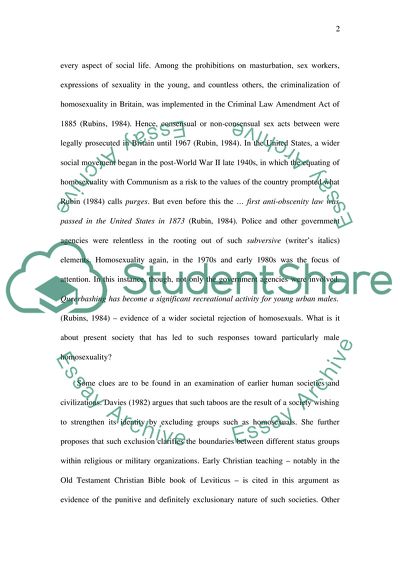Cite this document
(Sexual Taboo and Social Boundaries Research Paper, n.d.)
Sexual Taboo and Social Boundaries Research Paper. https://studentshare.org/gender-sexual-studies/1736470-sexuality-studies-review-essay
Sexual Taboo and Social Boundaries Research Paper. https://studentshare.org/gender-sexual-studies/1736470-sexuality-studies-review-essay
(Sexual Taboo and Social Boundaries Research Paper)
Sexual Taboo and Social Boundaries Research Paper. https://studentshare.org/gender-sexual-studies/1736470-sexuality-studies-review-essay.
Sexual Taboo and Social Boundaries Research Paper. https://studentshare.org/gender-sexual-studies/1736470-sexuality-studies-review-essay.
“Sexual Taboo and Social Boundaries Research Paper”. https://studentshare.org/gender-sexual-studies/1736470-sexuality-studies-review-essay.


